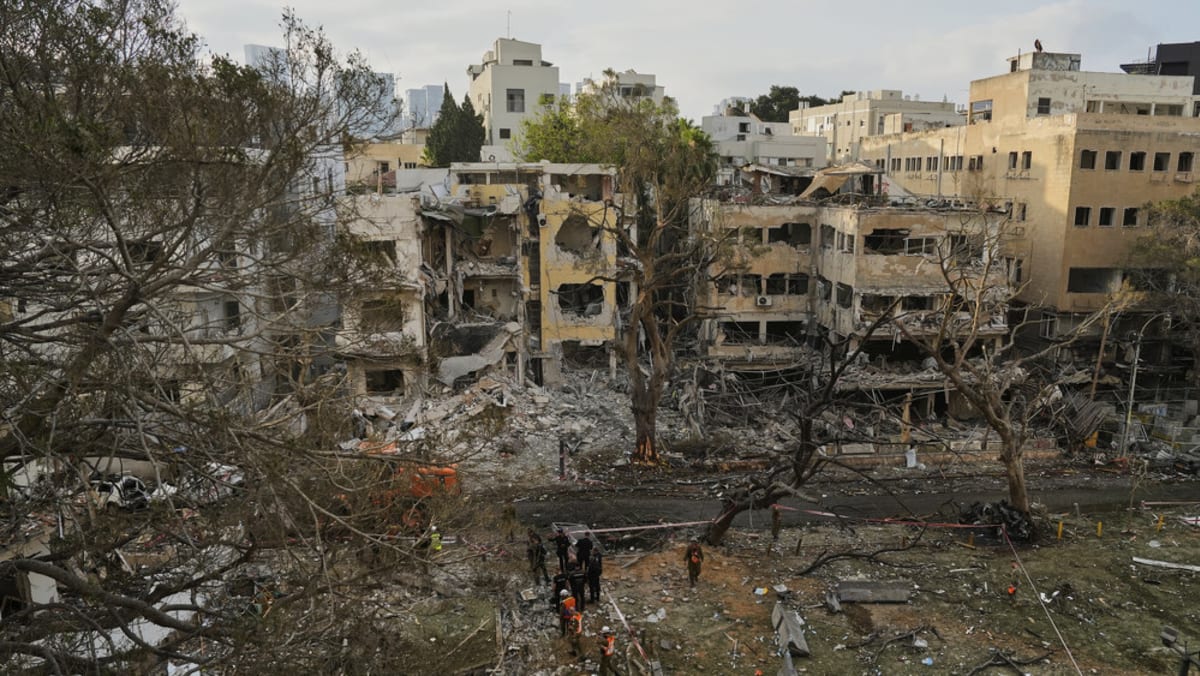TEL AVIV: Iranian missiles struck Israel’s Tel Aviv and the port city of Haifa before dawn on Monday (Jun 16), killing at least eight people and destroying homes, prompting Israel’s defence minister to warn that Tehran residents would “pay the price and soon”.
Iran said its parliament was preparing a Bill to leave the Nuclear Non-Proliferation Treaty (NPT), adding that Tehran remains opposed to developing weapons of mass destruction. Passing the bill could take several weeks.
Israel is presumed to have a sizable nuclear arsenal, but neither confirms nor denies it. It is the only Middle East state that has not signed the NPT.
Israel’s military, which has gutted Iran’s nuclear and military leadership with airstrikes, said on Monday it had killed four senior intelligence officials, including the head of the Revolutionary Guards’ intelligence unit.
Israeli authorities said a total of seven missiles of the fewer than 100 fired by Iran overnight had landed in Israel. A military spokesman also said Israel had achieved aerial superiority over Iran and had destroyed more than a third of Iran’s surface-to-surface missile launchers.
At least 100 people were wounded in Israel in the overnight blitz, part of a wave of attacks by Tehran in retaliation for Israel’s strikes targeting the nuclear and ballistic missile programmes of sworn enemy Iran.
Iran, facing its worst security breach since the 1979 Islamic revolution, said dozens of alleged saboteurs and “spies” linked to Israel had been arrested since the start of the conflict.
Iran’s currency has lost at least 10 per cent of its value against the US dollar since the start of Israel’s biggest ever attack on its old enemy last Friday.
The dangers of further escalation loomed over a meeting of G7 leaders in Canada, with US President Donald Trump expressing hope on Sunday that a deal could be done, but no sign of the fighting abating on a fourth day of war.
